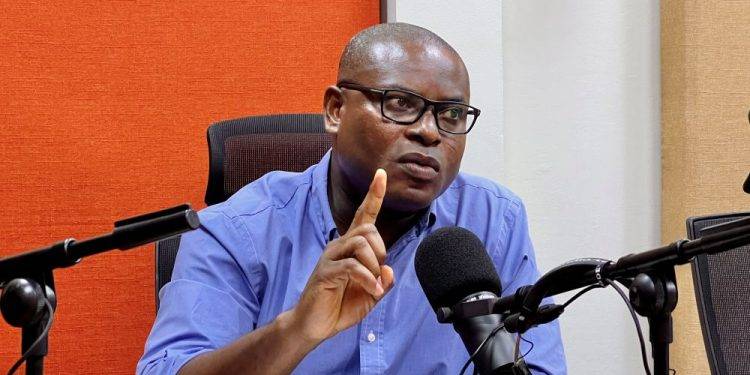Richard Ahiagbah, the Director of Communications for the New Patriotic Party (NPP), has offered a strong defense of President Nana Addo Dankwa Akufo-Addo’s management of Ghana’s economy, highlighting the administration’s resilience in the face of unprecedented challenges. Speaking during the Point Blank segment on Eyewitness News, Ahiagbah argued that Akufo-Addo’s economic policies and initiatives deserve commendation, even if external shocks temporarily disrupted progress.
Ahiagbah’s remarks come as political parties and analysts debate the outgoing administration’s economic performance in the lead-up to Ghana’s 2024 general elections. Acknowledging the economic downturn that occurred during Akufo-Addo’s tenure, Ahiagbah maintained that the setbacks were primarily due to external factors beyond the government’s control. He asserted that, under normal circumstances, Ghana’s economy would have been in a much stronger position by the end of the president’s term in 2025.
He noted that global events, such as the COVID-19 pandemic and geopolitical tensions, significantly impacted economic activities worldwide, including Ghana. According to Ahiagbah, these events created unavoidable challenges that hindered the government’s ability to achieve its full economic potential.
“The task given to Akufo-Addo to manage the economy, he didn’t do bad at all. Take away all the shocks that we had, which are real shocks, this economy would have been at a much better place than we are ending up with,†Ahiagbah said, emphasizing that external disruptions played a significant role in the economic difficulties experienced under the Akufo-Addo administration.
Despite these challenges, Ahiagbah pointed to signs of economic recovery, noting that Ghana’s economy has been experiencing growth in recent quarters. He highlighted data from the first three quarters of the year, which indicated a growth rate of approximately 7%. Ahiagbah argued that this recovery reflects the strength and resilience of the administration’s economic policies, which have laid the groundwork for sustained growth in the years to come.
“But where we are now, if you look at this year, the first three quarters that have come, the economy is growing about 7%. This then indicates to you that when you get to 2025, you have that momentum going forward which will drive growth. That must be noted,†he explained.
Ahiagbah rejected claims that the NPP shied away from addressing economic issues during the election campaign, insisting that the party actively engaged in discussions about its economic record. He credited the Akufo-Addo administration with implementing measures to stabilize the economy after the downturn, demonstrating a commitment to recovery and sustainable development.
“Yes, the economy went down, but the Akufo-Addo/Bawumia administration brought it back. So, it is never true that during the campaign, we ran away from the conversation about the economy,†Ahiagbah said.
He also called for a balanced assessment of the administration’s economic performance, urging critics to consider the broader context of external pressures and the strides made in recovery efforts. According to Ahiagbah, the Akufo-Addo administration’s legacy should be evaluated not only on its ability to address immediate challenges but also on its vision for long-term economic growth and stability.
While Ahiagbah’s defense of the government has been welcomed by some supporters of the NPP, others have raised questions about the effectiveness of the administration’s policies and their impact on ordinary Ghanaians. Critics argue that issues such as high inflation, a depreciating cedi, and rising public debt have undermined the quality of life for many citizens, casting doubt on claims of economic success.
Nonetheless, Ahiagbah’s comments highlight the complexities of governing in a volatile global environment and the difficulty of navigating economic challenges while addressing the needs of a diverse populace. As the debate over Akufo-Addo’s economic legacy continues, it remains to be seen how these discussions will influence public perception and the broader political landscape in Ghana.
The narrative of resilience and recovery presented by Ahiagbah underscores the importance of evaluating government performance within the context of external factors and the constraints they impose. Whether this perspective resonates with voters and stakeholders will depend on their assessment of the tangible outcomes of the administration’s policies and their impact on the nation’s economic trajectory.
As Ghana transitions to a new administration in 2025, the lessons learned from Akufo-Addo’s tenure will likely shape the strategies and priorities of future governments, emphasizing the need for adaptability, accountability, and a focus on sustainable development in the face of global uncertainties.


